At the beginning of every year, a wave of zealous resolutions emerge. Reading, travelling, prioritising mental health, fitness, and weight loss seem to make it to the top of everyone’s list. Motivation peaks and gyms invariably witness a surge in memberships. Promises of a healthier lifestyle, chiselled physique, and gym-honed resilience are etched into the collective consciousness.
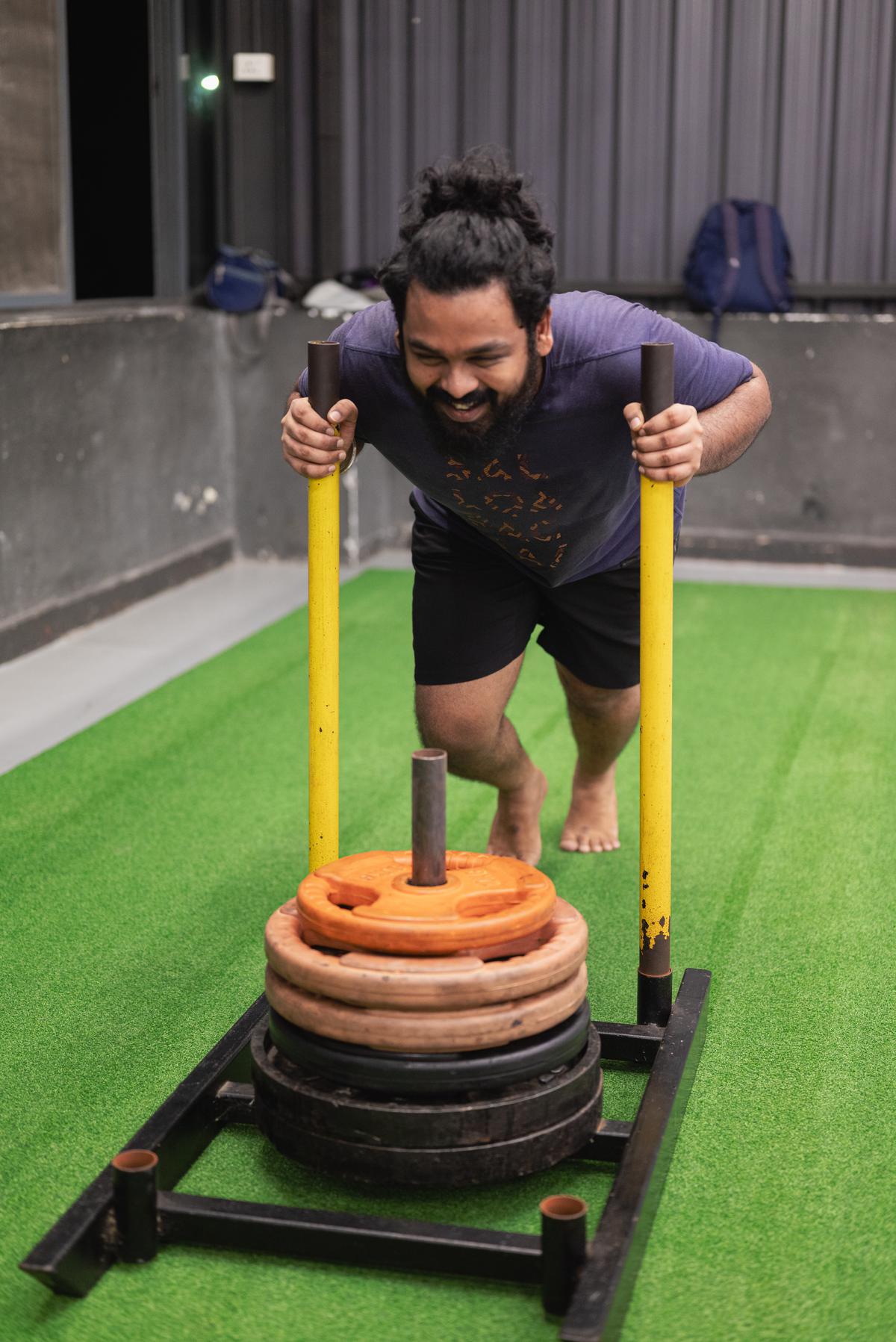
Training at simpleSTRONG
| Photo Credit:
Special Arrangement
However, beneath the neon glow of fitness ambitions lies a phenomenon — inevitable waning consistency. Come February, gyms that once buzzed with January’s fervour fall silent, as resolutions shift from commitment to quiet echoes of unfulfilled promises made to oneself.
How do the coaches keep clients on track?
A clean slate
“When people make resolutions for a new year, they are not thinking realistically. They are looking at the new year as a fresh start and thinking of all the great things they can achieve,” says Raj Ganpath, co-founder, The Quad. He adds that this applies not just to fitness-related resolutions, but other things as well. “Eventually, the motivation wanes because real life catches up. You have work, you’re stressed and tired, and realise that you cannot practically do what you set out to do.”
When people are presented with a clean slate, Raj says they tend to bite more than they can chew, often under a false sense of motivation. There are two reasons to this. “First is that this is driven by guilt. From November, until the end of the year, since it is the festive season, people let go and think that they can make up with health and fitness once all this passes. Second is that your motivation levels are at a peak at the start of the year because your stress levels are low towards the end of the year. This makes you feel like you can achieve great things,” he says, adding that these are the main reasons why people sign up for a whole year’s subscription at the gym immediately. This is also what a lot of gym owners bank on.
“I signed up for a year’s subscription at a gym close to my house in January, thinking I can make it every day without fail. It’s embarrassing to say, but I have not been as consistent as I thought. I go thrice or four times a week at most, but I still think that’s a win because I had no physical exercise prior to this. I aim to keep this pace and slowly increase it, but in retrospect, I shouldn’t have paid for an entire year in one go,” says Priyanka Fernandez, a marketing professional who works from home.
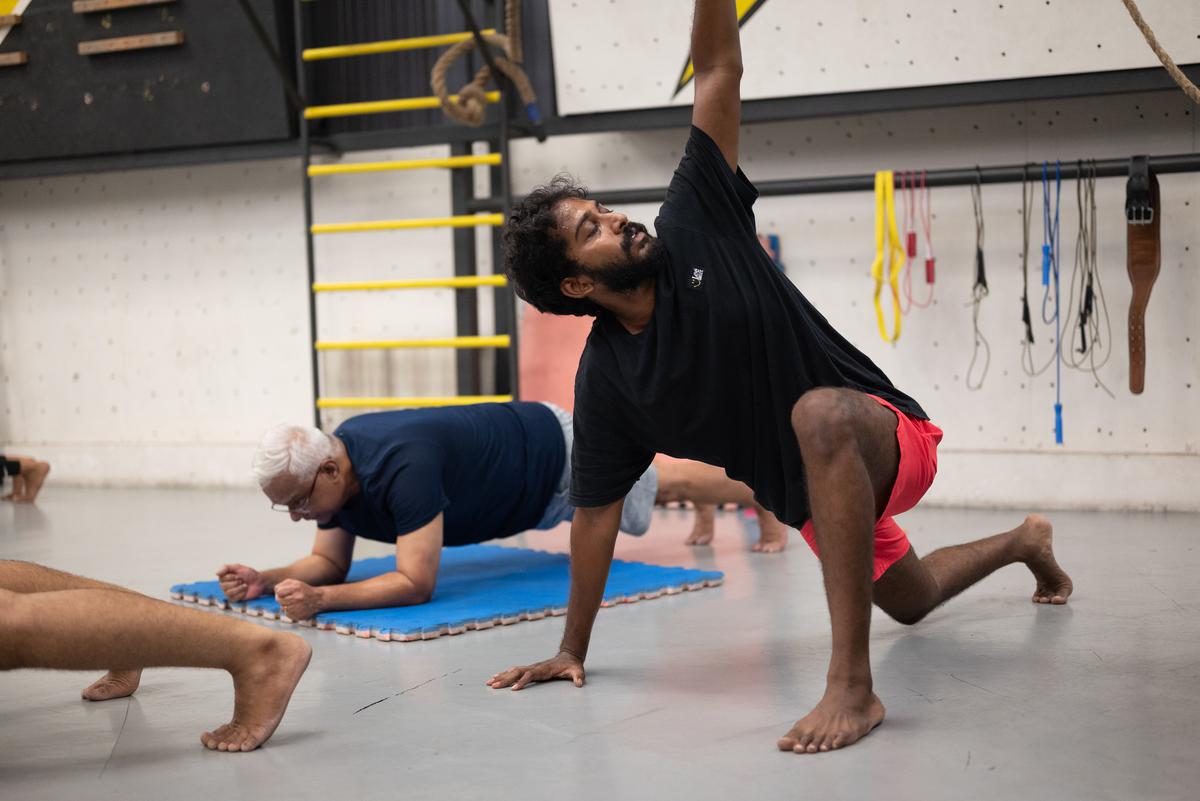
Training at simpleSTRONG
| Photo Credit:
Special Arrangement
However, the longest membership period at simpleSTRONG, a city-based sports and fitness institution, is quarterly. “That’s the amount of time we need, to show change in a person’s habits and performance. The one-year memberships are more of a business strategy because the concept of resolutions plays a big role in the fitness industry,” says Ashwin Ramdas, co-founder and head coach at simpleSTRONG.
At simpleSTRONG, fitness extends beyond the walls of the gym. They organise fitness retreats and vacations called Recharge at stunning locations in India and abroad — where learning, community, food, adventure, and play are at the forefront. “These retreats add a layer of fun to fitness, making it less tedious and fostering a sense of community. The takeaway from these trips is to have learnt something about fitness and training philosophies,” says Ashwin, as he prepares to leave to Sri Lanka for a retreat.

Fitness retreat by simpleSTRONG
| Photo Credit:
Special Arrangement
Realistic goals
A resolution made in the motivational high of January is more a wish list, and less a list of achievable, practical goals. “People set unrealistic goals, and this is also fuelled by social media. People are putting out a lot of workout regimes and diets that are not tailored to you. Setting smaller and realistic goals, and focussing on habit and consistency rather than numbers, is the key,” he adds.
“More often than not, resolutions are motivated by the goals and not the effort people need to put it. You have to break it down and think about the ‘hows’ and create habits around that,” mirrors Raj.
For someone who is just starting out on their fitness journey, working out five days a week is unrealistic. “Training three days a week, no matter what kind of training — Zumba, running, strength training, swimming, sports — is enough. They can then focus on increasing the days or the effort put on each day slowly with each quarter,” says Ashwin.
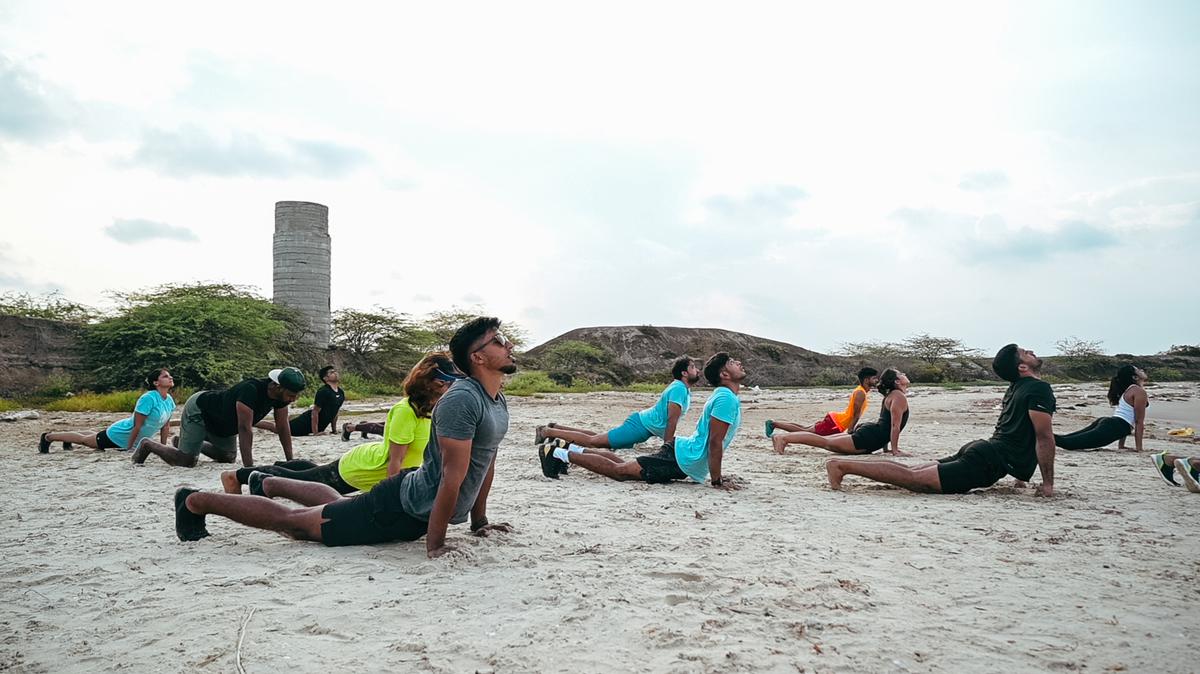
Fitness retreat by simpleSTRONG
| Photo Credit:
Special Arrangement
Every month, the number of people who are consistently sticking to their resolutions sees a steady decline. According to a large-scale experiment on New Year’s resolutions, a research paper by US-based National Library of Medicine observes that one week into the new year, 77% of participants had maintained their resolutions; the number decreased to 55% after one month, 43% after three months, 40% after six months, and 19% at the end of the year.
One thing that helps people stick to their goals is to have a coach who can guide them through the fitness journey. While it might be easier to pick up a workout regime off social media and follow it blindly, having a good coach helps you be motivated, and can evaluate your progress realistically.
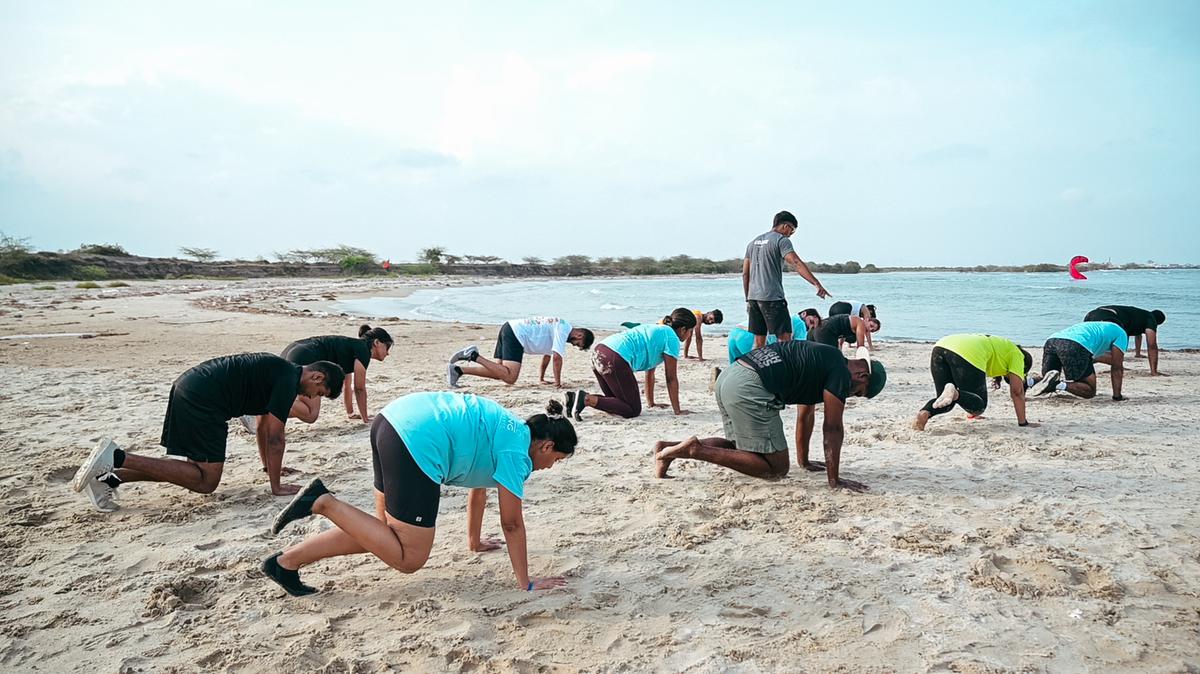
Fitness retreat by Simple Strong
| Photo Credit:
Special Arrangement
“Your coaches are your biggest motivators, and they keep you accountable,” says Divya Rolla, head of training and development at CultFit. She adds, “They are tracking your progress and helping you stay the course. Apart from that, we also have the Cult app where we have leaderboards, pop-ups, and awards you win for keeping a streak, and step counters that push you. Cult also organises events like yogathons, and dance fitness parties in outdoor public arenas that ensures one never gets bored.”
“At The Quad, things are different because of the way the programming works. Training is periodized for a year. We have your year planned out into what we call a Macrocycle. We break it down into four Mesocycles for each quarter. Every cycle has a start and end and a week’s break between every quarter. This way, we have a fresh start every quarter. That’s the secret sauce. Each quarter is a 12-week-period with workouts of varied intensities. A quarter is punctuated with engaging community workouts that help break the monotony,” says Raj.
Fitness extends beyond workouts. A major part of wellness includes diet and mindfulness, and Nature movement training centre Fit-O-Crazy helps with this very aspect. With an open air arena for training with the five element approach — air (balance and awareness), water (flexibility and mobility), fire (speed, agility and cardio), earth (strength), and space (outdoor training), and a self-dependence corner where you can cook your own pre- or post-workout meals, and ice bath sessions, they help shake things up.
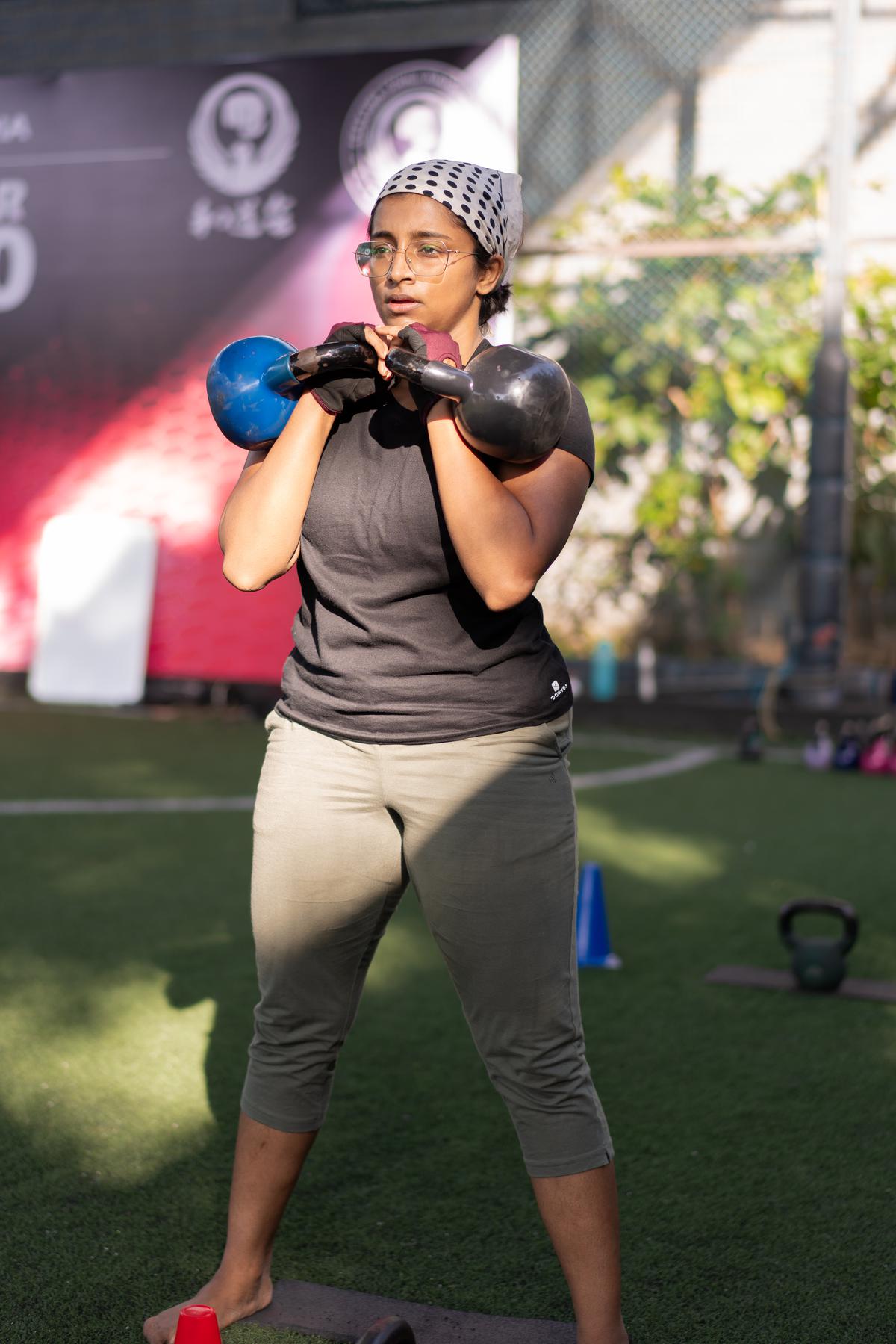
Training at The Quad
| Photo Credit:
Special Arrangement
It is unrealistic to expect to be motivated on a daily basis. “It is easier to pick a form of workout you enjoy, do that twice a week, and then do something that you don’t enjoy as much, but is necessary from a progress standpoint. For example, I enjoy Yoga, but I don’t like cardio, but I have to do cardio as well,” adds Divya.
She says that another method to stay on track is to have an accountability partner or a workout group. The gentle peer pressure of letting someone in on your goals becomes key for being consistent at the gym. Having someone count on you to show up fosters a sense of responsibility. An added bonus is you become a part of a fitness oriented community. In knowing that you are not alone, is the greatest motivator.

